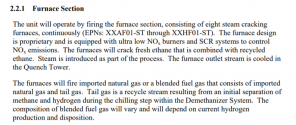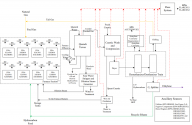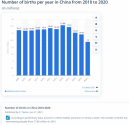Right now we use natural gas to produce olefins. Run the gas through the furnace and steam cracking the hydrocarbon.So basically straight converting from crude to ethylene and propylene ?
Just wondering what is the current process? is it from refined oil to the chemicals?
Just built one in Corpus. Exxon has the most efficient furnace designs and they are building one in Huizhou as well right now as we speak.
Sinopec using crude might be cause its cheaper feedstock than gas.



